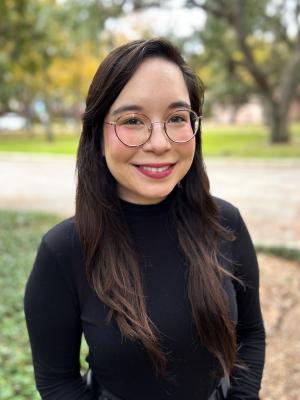I am primarily curious about understanding and addressing challenges that are not directly work-related but nevertheless impede on employees' abilities to perform at work, pursue career goals, or maintain job satisfaction and wellbeing. My research program follows three central and interrelated aims. First, I seek to explain the role of financial stress and workplace pay practices on employees’ behaviors, perceptions, and decision-making at work. My second line of research clarifies the processes that shape employee resilience, or the continued pursuit of goals despite adversities. Third, I aim to further our understanding of physiological and mental health implications of employee stress. To address these aims, I draw from varied organizational research methods, including experience sampling methodology, physiological measurement, meta-analysis, qualitative interviews, multi-source data (e.g., supervisors and employees), and experimental designs.
Phetmisy, Cassandra
Bio
Dr. Cassandra N. Phetmisy is an Assistant Professor of Psychology at the University of Maryland in College Park. She received her PhD in Industrial-Organizational Psychology from Rice University. Her research is centered on the influence of critical contextual (non-work) stressors on employee effectiveness and wellbeing. A core question she answers through research is: “How does stress influence employees’ well-being, goal pursuit, and work experiences?” Dr. Phetmisy focuses on three central topics to address this question: (i) behavioral and psychological effects of financial stress and pay on employees, (ii) psychological processes that influence employee resilience, and (iii) health implications of employee stress.
Dr. Phetmisy is not reviewing PhD applications for students applying to start in Fall 2026.
Degrees
Rice University; Psychological Sciences, 2024 - PhD
Rice University; Psychological Sciences, 2022 - MA
University of Houston; Psychology, 2018 - BS
Areas of Interest
Financial and Economic Stressors
Organizational Pay (e.g., amount, timing, volatility)
Stress and Wellbeing
Resilience and Motivation


